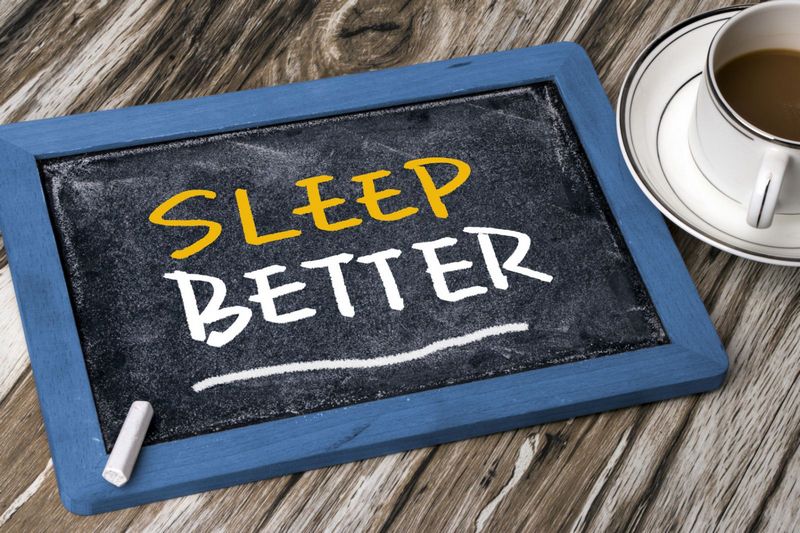Many of us suffer from sleep disorders and cannot fall asleep for a long time or wake up with great effort. Canadian Pharmacy knows 13 scientifically proven methods will help to get rid of this problem.
Scientifically Proven Methods to Get Enough Sleep

1. Determine how much you need to sleep
We are all different: according to chronotype, people are divided into «larks» (early sleepers), «owls» (late sleepers) and «pigeons» (middle type). Working schedule typically does not consider individual biorhythms: traditionally offices open at 8 – 9 o’clock in the morning. A severe test for owls and for those who could not, for whatever reasons, go to sleep on time.
The advice is simple: first, study your body.
Go to sleep as soon as you want. Turn off your alarm clock and sleep as long as you want.
In order to determine your natural biorhythms and habits, you need a few days off work. It can be long holidays or even weekends. During this “free-floating” a person usually sleeps from 7 to 9 hours – this is the time during which the body is fully restored.
Determine what rituals associated with sleep you have. Do you watch TV before you go to bed? Do you wake up at night to drink water or eat something? You cannot change your habits if you do not study them.
2. Choose your bedtime
Do not try to go to bed as early as possible. This is an undefined goal that is almost impossible to achieve. Instead of this, schedule your «lights-out» time depending on how early you need to get up.
Suppose, the experiment described in the paragraph above, has shown that you need to sleep 8 hours. And you need to get up at 7:00. Then go to bed at 23:00 or a little earlier.
To get into a regimen, try to stick to it also on weekends. But sometimes allow yourself as an exception to sleep until noon or go to bed later.
3. Give up working in a bedroom
Once you have decided on the time needed to get enough sleep, make a set of rules that will help you relax. This can be muted light, refusal from watching TV an hour before going to bed, and so on.
Keep in mind: work and rest should not happen in one place! It is important for the formation of correct habits associated with sleep. Do not check e-mail in bed, do not finish article or report. Otherwise, you will not be able to fully relax.
The main principle is that bed is for sleeping and sex.
4. Do not drink alcohol and eat before going to bed
Here everything is simple: late dinner is fraught with heartburn, which will definitely not allow quiet sleep.
As for alcohol, researchers found: drinking a glass of wine “to relax” before going to bed, causes sleep disorders during the second half of night.
The more time there is between meal and alcohol consumption and sleep – the better.
5. Turn off gadgets 30 minutes before going to bed
It is advice that we all ignore (we want to read an e-book, check social networks and so on). And for no good reason.
The light that comes from smartphone imitates the sun.
It gives a signal to the brain to stop melatonin production. This is an important hormone that regulates circadian rhythm (changing of cycles of sleep and wakefulness) and signals when it is time to sleep, and when – to wake up.
Circadian rhythm disorders lead not only to poor sleep: they are also fraught with problems with vision, development of depression and cancer. So it is better to put aside your gadgets away.
6. Relax for 30-60 minutes
Here are some recommendations from US National Sleep Foundation:
- Read a book or magazine (not electronic, but paper and not work-related);
- Record your thoughts. Experts say that keeping a diary before going to bed can help to cope with stress and anxiety;
- Follow rituals that will send a signal that you are getting ready for bed: brush your teeth;
- Try meditation. Studies have shown that it improves psychological well-being.
7. Do not get more sleep
Experts say that if you wake up earlier and have decided to get a little more sleep, it will be much harder to get up on time. Most likely, you will fall into a deep sleep.
So it is better to use the chance which your body gave you and use early morning for some useful things.
8. Do morning exercises
Exercise, combined with sunlight interrupt melatonin production and give cheerfulness. This will start a new cycle, which will prepare your body for sleep.
By the way, training in the afternoon will also help to fall asleep at night time but do not load yourself too late.
CrossFit after 21:00 is clearly contraindicated – replace it with yoga.
In any case, loads for a good sleep should be adjusted individually.
9. Do not worry about whether you will be able to sleep
Of course, easier said than done. There are those who wait for the night with fear, looking at watch, anxious, that again will not be able to fall asleep tonight. And after sleep does not really come, experience negative emotions: fear, anxiety, anger. This can lead to chronic insomnia.
In this case, doctors recommend removing all watches and clocks from a bedroom and other items reminiscent of possible insomnia.
There is no need to consider the fact that you can not fall asleep a disaster. Instead of worrying about the upcoming heavy working day, think about how well you fall asleep the next night.
10. Practice relaxation
Every time you worry about not falling asleep the body produces stress hormones. In the end, falling asleep really becomes a problem.
To get out of this circle is possible with the help of progressive relaxation invented by American neurologist Edmund Jacobson. These are exercises alternating relaxation and tension of individual muscle groups.
This is one of the most effective ways to combat chronic insomnia.
11. Think positive
In many cases, people who believe that they suffer from insomnia tend to exaggerate their problem. They believe that they slept less than it was in reality. If you try to switch to positive, scale of the disaster will reduce significantly.
12. If you can’t sleep – get up
Do not lie in bed for hours, hoping to fall asleep. If you are unable to do it for 20 minutes, get out of bed and do something. But do not turn on computer, telephone or television, which can worsen the problem.
Experts believe that this rule helps to break the vicious circle in which bed is associated with negative emotions.
13. Do not force yourself to sleep
To fall asleep, it is not necessary to try to do it. Simply create all necessary conditions (turn off the lights, turn on some soft music, open a window, and so on) and relax.
Do not think about whether you will fall asleep or not.
We hope you find this article interesting and informative. For more information, please visit our «News» category.
Posted by Dr. Himanshu Singh

 English
English Deutsch
Deutsch Français
Français Italiano
Italiano Español
Español Svenska
Svenska Português
Português 日本人
日本人 Dansk
Dansk Norsk
Norsk Suomi
Suomi Czech
Czech
